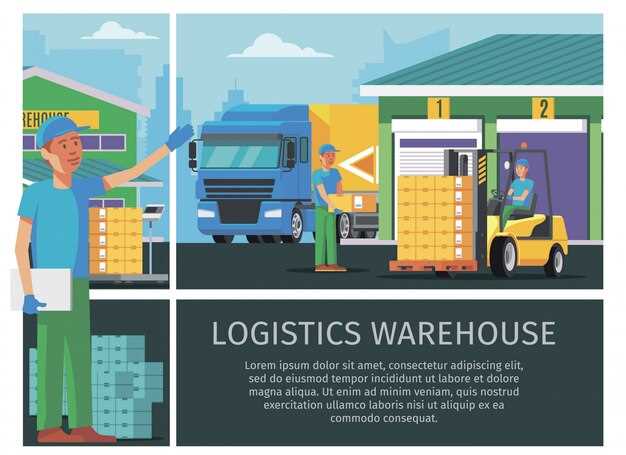
The logistics of shipping vehicles, particularly in bulk, presents unique challenges that require specialized solutions. As the demand for efficient and cost-effective transport options increases, auction transport solutions have emerged as a viable method for moving large quantities of cars simultaneously. These solutions not only streamline the process but also contribute to notable cost savings for dealers and auction houses.
In bulk car shipping, transport efficiency is crucial. Auction houses often handle a wide array of vehicles, making it essential to develop effective strategies for organizing and executing shipments. Understanding the dynamics of bulk shipping allows for better planning and execution, ensuring that vehicles reach their destinations safely and on time.
Additionally, the rise of e-commerce and online auctions has transformed how bulk car shipments are conducted. Advanced technologies and logistics software allow for real-time tracking and management, offering auction participants greater transparency and reliability during the shipping process. By utilizing these modern tools, stakeholders can optimize their transportation strategies, ensuring that bulk shipments of cars are handled with maximum efficiency.
Understanding the Logistics of Bulk Car Shipments

Bulk car shipments involve transporting multiple vehicles in a single shipment. This process is critical in the automotive industry, where manufacturers and dealers need efficient methods to move large quantities of cars. Effective logistics management is essential to ensure timely delivery and minimize costs.
A major factor in bulk car shipping logistics is the choice of transportation mode. Options include container shipping, roll-on/roll-off (RoRo), and flat rack methods. Each mode has its advantages, depending on factors such as destination, transit time, and cost-effectiveness. RoRo, for instance, allows vehicles to be driven directly onto the ship, facilitating quicker loading and unloading processes.
The planning phase is crucial in bulk shipments. It involves coordinating schedules, booking cargo space, and ensuring compliance with international regulations. This requires close collaboration with shipping lines, freight forwarders, and customs agents. Proper documentation is also vital, including bills of lading, customs declarations, and insurance policies.
Loading and unloading procedures must be meticulously executed to prevent damage. Utilizing specialized equipment, such as ramps and cranes, helps ensure the safe handling of vehicles. Additionally, understanding the weight distribution on the ship is necessary to maintain stability during transit.
Finally, tracking shipments in real-time enhances visibility throughout the process. Modern logistics solutions usually incorporate sophisticated tracking technologies that provide updates on the shipment’s location and status. This transparency helps manage expectations and address any issues promptly. Maximizing efficiency in the logistics of bulk car shipments ultimately leads to cost savings and improved customer satisfaction.
Optimizing Car Lot Operations for Smooth Transportation
Efficient car lot operations are crucial for ensuring smooth transportation in bulk car shipments. By streamlining processes and implementing best practices, dealerships and logistics companies can significantly enhance their overall productivity and minimize delays.
Firstly, organization of car lots plays a vital role. Cars should be arranged systematically, categorized by model, size, or destination. This not only helps in easy identification but also accelerates loading times during transportation. Allocating specific zones for incoming and outgoing vehicles reduces congestion and allows for a clear flow of operations.
Secondly, investing in technology can provide a substantial advantage. Utilizing an inventory management system enables real-time tracking of vehicles, ensuring that logistics managers have immediate access to information regarding the status and location of cars. Additionally, employing barcode scanning or RFID technology can enhance accuracy in inventory counts, facilitating smoother transitions from car lots to transport vehicles.
Effective communication among staff is essential. Establishing clear protocols and assigning roles can eliminate confusion and allow team members to perform their tasks efficiently. Regular training sessions can keep everyone updated on operational procedures and safety measures, contributing to a more cohesive work environment.
Moreover, optimizing the loading process can drastically improve transportation efficiency. Scheduling specific time slots for loading vehicles reduces waiting times and allows for better coordination with transportation providers. Preparing vehicles in advance, including cleaning and inspecting, ensures that cars are ready for shipment without unnecessary delays.
Finally, analyzing and adjusting operational metrics regularly helps identify bottlenecks. Utilizing data analytics to track performance indicators enables businesses to make informed decisions that will enhance car lot efficiency in the long run. Ultimately, by focusing on organization, technology, communication, loading procedures, and continuous improvement, car lot operations can achieve optimal efficiency, leading to seamless bulk car shipments.
Key Factors to Consider When Choosing Transport Providers

When selecting transport providers for bulk car shipments, several crucial factors must be taken into consideration to ensure efficiency and reliability in the delivery process. These factors can significantly influence the success of your logistics strategy.
1. Industry Experience
Choosing a transport provider with extensive experience in handling bulk shipments of cars is essential. An established company understands the nuances of transporting large lots, including regulatory requirements and the best practices for securing vehicles. Look for providers with a proven track record in the automotive logistics sector.
2. Fleet Capability
Assess the provider’s fleet size and type. It is important to ensure they have the right vehicles for transporting bulk shipments of cars safely. Specialized carriers and equipment can mitigate potential damage during transit, so providers with a diverse fleet may offer greater flexibility for accommodating different shipment sizes and types.
3. Safety Protocols
Safety is paramount when transporting vehicles in bulk. Inquire about the provider’s safety measures and certifications. A reputable transport provider should have clear protocols for securing lots of cars, as well as insurance coverage to protect against any potential loss or damage during transit.
4. Cost-Effectiveness
While it’s important not to compromise on quality, cost is always a vital factor. Evaluate pricing structures of various transport providers. Ensure the quotes include all aspects of delivery, such as fuel surcharges and tolls, to avoid extra costs later. Look for competitive rates without sacrificing service quality.
5. Technology and Tracking
In today’s logistics, technology plays a significant role. Choose a provider that offers advanced tracking systems, enabling you to monitor the status of your bulk car shipments in real time. Effective communication tools and platforms can also enhance transparency throughout the shipping process.
6. Customer Reviews and Reputation
Research and read customer reviews about potential transport providers. Feedback from other businesses can provide insights into reliability, punctuality, and overall service quality. A provider with a solid reputation will likely deliver better results in transporting bulk lots of cars.
By carefully evaluating these key factors, businesses can secure a reliable transport provider that meets their needs for bulk car shipments, ensuring a smooth and efficient logistics process.



